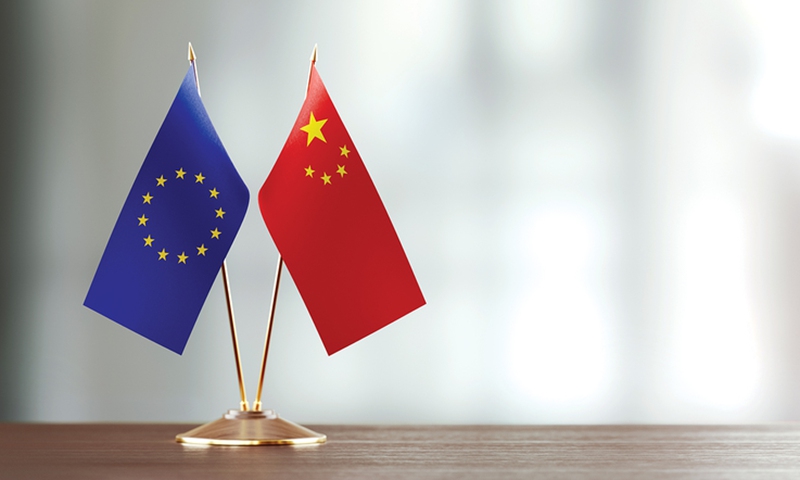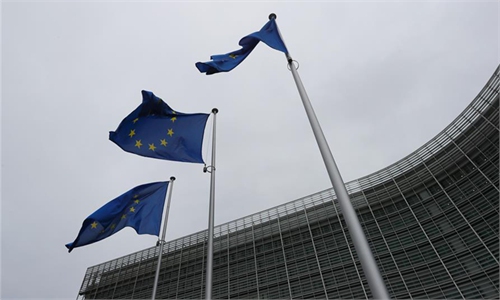China's commerce ministry calls geographical indications agreement with EU a milestone

China-EU Photo: VCG
China's commerce ministry on Tuesday applauded the official signing of the China-EU agreement on Geographical Indications (GIs), calling it the first major trade agreement between China and the EU in recent years, which is "a milestone" in deepening the bilateral economic and trade cooperation due to its large amount of protected indications, rich varieties and high level of protection.
During the virtual summit on Monday, China and the EU moved into a landmark agreement on protecting the GIs of 275 of each other's products, including alcoholic beverages, tea, agricultural products and food.
The protection of the first 100 mutually recognized geographical indications of each side has taken effect on Monday, and relevant protection mechanisms of 175 additional GI names from both sides will be completed within four years.
"It is the first time for China and the EU to recognize each other's geographical indications on a large scale, in total 550 (275 of each) and all of them are prestigious and well-known," China's Ministry of Commerce (MOFCOM) said in a statement on Tuesday, citing China's Shaoxing wine, Lu'an Gua Pian tea, Anxi Tieguanyin Oolong tea, wine from Ningxia's Helan Mountain's eastern region and Europe's Champagne, Bavarian beer, Parma ham and olive oil from Magina mountain.
In fact, the GIs on the list go far beyond food. GIs with Chinese characteristics representing traditional Chinese culture are also listed, such as Chinese rice paper and Sichuan Brocade. The previous GI agreements signed by the EU with other foreign partners only included agricultural products, food and alcoholic beverages, so it is the first time for the EU to include the above cultural GIs, according to the MOFCOM.
The last but not least, the agreement will help promote the popularity of each other's products and expand their markets. The high level of protection will help relevant Chinese products to win recognition from EU consumers and also further promote China's exports to Europe, while providing legal protection from counterfeit GIs, the ministry noted.
For Europe, the agreement provides adequate protection to good European products and dispels worries of European producers.
In addition to expanding the bilateral trade scale, the agreement shows China's resolution of continuing opening up, deepening reform continuously and enhancing intellectual property protection, the MOFCOM said.
"It fully embodies the commitment of China and the EU to carry out free and open trade and support the rule-based multilateral system. Under the current situation, the signing of the agreement will for sure shore up confidence for the economies of China and Europe, as well as the global economy," the ministry reaffirmed.
"The signing of the agreement is of great significance and marks strides made in China-EU trade cooperation, as such an agreement shows an enhanced awareness of intellectual property protection and mutual acknowledgement of cultural and historical values behind the GIs," Cui Hongjian, director of EU Studies at the China Institute of International Studies, told the Global Times.
Starting negotiations on the agreement in 2011, China and the EU spent eight years through 22 rounds of talks to reach the agreement.
In the next step, the two sides will put the agreement into force in accordance with their respective laws and regulations in order to benefit the enterprises and people of both sides as soon as possible, the ministry said.

